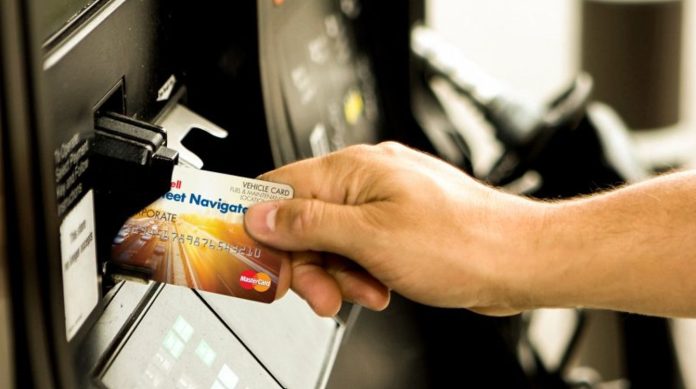Fuel cards offer several benefits to businesses, including discounts or rebates on fuel purchases, data-tracking capabilities that simplify fuel expense tracking and enable powerful data analytics, as well as automated fuel expense tracking that provides more accurate and complete fuel expenditure data than spreadsheets. In addition, fuel cards offer purchase controls to manage spending at the pump, including driver or vehicle limits on purchase amount, fuel grade, fuel type, time of day/day of the week, fuel brand stations, and the number of transactions. Trucking fleet gas cards offer even more control through driver PINs at the pump, automatic online accounting, and easy-access reports for every transaction. By implementing a fuel card program, businesses can save both time and money while getting better insights into their fleet’s performance.
Cost Savings with Fuel Cards
Fuel is one of the largest expenses for businesses that operate fleets. Prices can fluctuate significantly and unexpectedly, meaning you can never be sure exactly how much you’ll spend on fuel each month. Fuel cards are a way to reduce these costs, providing consistent savings beyond what you would save at the pump. In this section, we will look at how fuel cards help businesses save money by controlling spending and offering rebates.
Let’s say your business operates a fleet of 20 vehicles, each traveling an average of 1,000 miles per month. If the average cost of fuel is $2.50 per gallon and each vehicle gets an average of 15 miles per gallon, that’s a monthly fuel bill of $8,333. With a discount of just $0.10 per gallon, a fleet fuel card can help your business save over $2,000 annually.
Moreover, fuel cards offer tools to curb spending, including limits on purchase amount, fuel grade, fuel type, time of day/day of the week, fuel brand stations, number of transactions, and limits by driver or vehicle. This level of control helps businesses identify fraud or misuse and track purchases online.
Fuel cards can significantly reduce the expenses of businesses operating fleets by controlling spending and providing consistent savings beyond what they would save at the pump. Fuel prices can fluctuate unexpectedly, making it hard for business owners to be certain about their monthly fuel expenses. However, a fuel card offers various tools that help control spending, including transaction limits and purchase restrictions on fuel type, grade, brand stations, time, and day of the week, among others. By getting just a $0.10 discount per gallon of fuel purchased, a business with 20 vehicles traveling an average of 1,000 miles per month could save over $2,000 annually. It is like having a personal finance assistant that closely follows your budget and ensures you don’t overspend. With significant discounts and rebates offered through fuel cards, businesses can take advantage of these benefits and reduce costs in their operations.
Discounts and Rebates
One way that fuel card providers offer savings to customers is through discounts and rebates on fuel purchases. These rewards can vary between providers and depend on factors like the size of your fleet and overall usage. By leveraging these rewards, businesses can further reduce their fuel expenses.
For example, WEX offers businesses up to 6 cents off per gallon. In addition to this, they also have partnerships with major fuel brands that provide even more savings on fuel purchases.
Fuel cards are better than credit cards or cash when it comes to savings since they offer exclusive discounts and rebates. Moreover, the WEX EDGE Savings Network offers exclusive discounts on fuel, tires, wireless, and more.
Think of a fuel card provider as your personal shopping assistant who finds the best deals and rewards so you can save money.
One common argument against using fuel cards is that the savings they provide aren’t significant enough to justify the investment. However, if you consider the example we used earlier, saving $2,000 annually on fuel costs is not an insignificant amount for businesses of any size.
With discounts and rebates in mind, let’s move onto the next section to discuss budget control and expense management.
Budget Control and Expense Management
Managing a fleet of vehicles can be expensive, time-consuming, and challenging for businesses. Fuel expenses, in particular, can add up quickly and become a significant financial burden for companies that rely on vehicles to operate. Fortunately, fuel cards can help businesses control costs and manage expenses more effectively.
One company that saw significant savings after implementing fuel cards was a delivery service with a fleet of 50 vehicles. Before using fuel cards, they relied on drivers to pay for fuel using their personal credit cards and submit expense reports for reimbursement. Not only did this lead to errors and inaccuracies in reporting, but it also made it difficult for the company to monitor spending or negotiate discounts with fuel suppliers.
However, after switching to fuel cards, the company was able to set purchase limits on each card and track spending in real-time through an online dashboard. They were also able to take advantage of available discounts offered by their preferred fuel vendors, resulting in savings of up to 15% on fuel expenses each month. Plus, with automated expense reporting, they saved time and money previously spent on manual data entry.
Think of fuel cards like a budgeting tool for your business’s vehicle expenses. Just as you might use a personal budgeting app to track your spending and keep your finances under control, fuel cards allow you to set spending limits, monitor purchases in real-time, and identify potential areas where you can cut costs.
In addition to cost-saving benefits, fuel cards also offer businesses greater visibility into their fuel spend. Rather than relying on manually compiled spreadsheets or receipts from employees to track fuel purchases, businesses can access detailed reports that provide insights into spending trends and patterns. This empowers business owners and fleet managers to make informed decisions about their transportation budgets.
Some companies may be hesitant to implement fuel cards due to concerns about data security and privacy. However, fuel card companies like WEX offer robust security features that help mitigate these risks. In addition to requiring driver PINs at the pump, WEX also provides transaction alerts and tools for monitoring potential fraud or misuse of fuel cards.
Real-time Transaction Tracking
One of the biggest advantages of fuel cards for businesses is real-time transaction tracking. Unlike traditional methods of paying for fuel, such as credit or debit cards, fuel cards provide a wealth of data on every purchase made by company drivers. This data not only includes the amount spent and where the purchase was made but also details like which vehicle and driver made the purchase, the odometer reading at the time of purchase, and even what type of fuel was purchased.
For instance, let’s say you’re a manager for a delivery company with a fleet of 20 vehicles. Without fuel cards, you would have to rely on manual records or receipts to track fuel expenses across all those vehicles. With fuel cards, however, all that data is automatically collected and organized for you in one place. You can quickly see how much each vehicle is spending on fuel and identify any potential discrepancies or misuse.
Real-time transaction tracking also allows businesses to react quickly to unusual or suspicious activity. If an employee attempts to use their fuel card outside of approved hours or at a location that’s not on the authorized list, fleet managers can receive an alert in real-time via email or text message. This allows them to investigate the situation immediately and prevent any further unauthorized spending.
Of course, some employees may feel uneasy about being constantly monitored and tracked through their fuel purchases. However, it’s important for employers to communicate clearly with their staff about why real-time tracking is necessary and how it benefits both parties. By preventing fraud and misuse of company funds, employers can create a more transparent and trustworthy work environment that benefits everyone.
With real-time transaction tracking, businesses can gain valuable insights into their fuel spending habits and make informed decisions about budgeting and cost control. But managing a fleet involves much more than just keeping tabs on fuel expenses. That’s where the next section comes in.
Streamlining Fleet Management
Fleet management can be a complex and time-consuming endeavor, particularly for businesses with large fleets or those that operate in multiple locations. Fuel cards help streamline this process by providing tools and insights that make it easier to track expenses and manage vehicles.
For example, fuel cards can provide automatic odometer tracking, which eliminates the need for manual tracking and helps ensure that vehicles are being properly maintained. Managers can set alerts for when a vehicle is due for maintenance based on mileage or other factors, such as time elapsed since the last service or number of hours driven.
Fleet managers can also use fuel card data to identify trends in fuel consumption and adjust route planning or driving habits accordingly. By analyzing fuel usage across different vehicles and routes, managers can pinpoint areas where improvements can be made to reduce overall fuel costs.
Think of fleet management like sailing a ship. Just as a captain needs to keep an eye on the weather, wind direction, tides, and other factors to steer their vessel safely to its destination, fleet managers need to keep track of a variety of data points to ensure their vehicles are operating safely and efficiently. Fuel cards act like a navigational tool helping them chart their course and stay on track.
In addition to data analytics, fuel cards offer numerous other benefits for fleet management, such as purchase controls, mobile technology integration, and simplified accounting. These features allow businesses to more effectively manage their fleets while also saving time and money on administrative tasks.
Data Analytics and Reporting
One of the most significant advantages of fuel cards is the data-tracking capabilities that allow for simplified fuel expense tracking and powerful data analytics. By using a fuel card, companies have access to an array of information that can help identify patterns, trends, and opportunities for cost savings.
For instance, fuel card transaction data includes driver, vehicle, odometer reading, purchase amount, fuel type, fuel station locations, and more. This information can be collected in real-time and housed in a fleet dashboard accessible from anywhere with internet service. Fleet managers can easily access this information to monitor spending levels or set limits on purchases by company policies or budgets.
Additionally, automated fuel expense tracking through fuel cards provides more accurate and complete fuel expenditure data than spreadsheets. These insights are valuable for identifying areas where costs could be minimized further. The use of technology brings a new level of visibility to management operations that were otherwise impossible to achieve manually.
However, some businesses may argue that they do not want to invest in the resources required to analyze the available data fully. While it is true that analyzing data can be time-consuming and requires specialized skills, it is ultimately an essential investment in driving cost savings long-term.
In many ways, think of it as putting your business “on the scale,” where you weigh every decision against carefully collected data to assess its effectiveness and impact on your bottom line. Businesses that are serious about staying profitable will always look towards incorporating modern-day technology into their operations.
Simplifying Accounting and Mobile Technology Integration
In addition to cost savings benefits and streamlined management processes offered by fleet fuel cards, they offer other valuable advantages such as simplification of accounting tasks within an organization.
Fuel card providers like WEX have a range of available reporting tools that can be customized to fit a business’s accounting needs. These tools can generate reports such as purchase histories, monthly vehicle use, fueling reports, exception reports, and more. The availability of such reporting tools can reduce the workload on internal accounting teams which would traditionally have been spent collating receipts and manually analyzing data.
By using WEX fleet fuel cards’ automated tracking systems and associated accounting tools available by mobile, businesses have the ability to streamline tasks involving the collection of data and expense processing for its management team.
Concerns may arise over accessibility or user-friendliness of such tools. However, leading providers have realized that humans cannot be replaced entirely within organizations by machines. Thus they make sure their platform is user-friendly and accessible to individuals with varying levels of understanding of technology.
In some respects, technology similar to fuel cards can be compared to an autopilot system in aircraft. It will help simplify complex tasks that prevent the pilot from exhausting critical resources required when flying at high altitudes.



































































